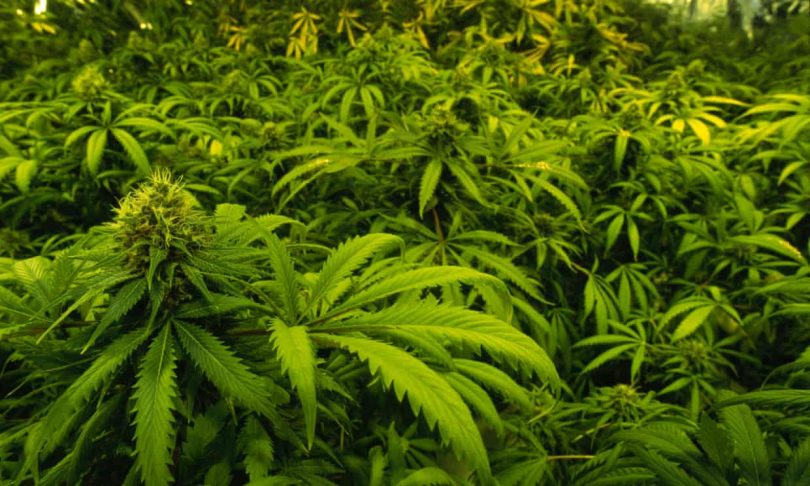Plant geneticists at LeafWorks tackle cannabis identification in an industry rife with inconsistency
The vaping-related lung illness (also called “EVALI”) made public this past summer created a media frenzy that the cannabis industry is still living through. While these illnesses and deaths have been linked to black market products, many states have chosen to ban vaping altogether. But the solution to this problem instead lies with stringent adherence to and the standardization and regulation of all cannabis products in the market, from seed to sale.
And testing shouldn’t end with a chemical certificate of analysis proving that the product lacks any harmful materials like pesticides, heavy metals, or molds. Genetic testing is the only way for consumers to guarantee that they are getting a consistent product every time.
Cannabis Cultivar Identification
Thousands of years of cultivation has produced a dizzying array of genetic diversity both naturally and purposefully introduced into the cannabis genome. [1] And most cannabis connoisseurs now accept that the dichotomy of sativa vs indica just doesn’t cut it anymore. [2] Picking up a product labeled “indica” at a dispensary is not going to guarantee that “in-da-couch” feeling. In fact, you may get a cultivar that perks you up instead.
Shouldn’t consumers, patients, and growers have detailed information at their fingertips every time?
Eleanor Kuntz, PhD and Kerin Law, PhD sure think so. In fact, inconsistencies in the industry motivated these plant geneticists to step out of academia and found LeafWorks, an herbal genetics company specializing in plant identification, research, and development to protect and advance the cannabis, hemp, and herbal industries.
“When we started LeafWorks, we knew that there was this real need in cannabis to help create a solid foundational framework for people to know what they’re buying, selling, and growing,” said Dr. Kuntz, CEO.
Complexities of Cannabis Genetics
The broad experience induced by a cannabis cultivar is dependent upon of a delicate balance of phytochemicals within the plant – this is referred to as a phenotype. Phenotypes are driven almost entirely by their genotype, or the genetic blueprint that determines the color, smell, and chemicals produced and in which ratios. [3] This means that you can pick up an OG Kush in California and have a very different experience from an OG Kush you purchased in Oregon. You can even purchase the same OG Kush brand at the same dispensary at different times and not have the same feeling twice.
LeafWorks hopes to change this with a simple mindset: chemistry is now; DNA is the future.
“Without identity at the genetic level, you can’t have full consistency of experience. The benefit to the end user is knowing that when I have this name on the product, I’m going to have the same experience that I had last time,” noted Dr. Law, Chief Scientific Officer. “Genetic testing, unlike chemical testing, cannot be fooled.”
Drs. Kuntz and Law met as graduate students while attending the University of Georgia, where they pursued research in evolutionary biology and plant genetics. Dr. Kuntz is a trained herbalist who has been in the community most of her life, while Dr. Law is passionate about DNA-based technology and plant genetics. Their unique specialties complement their common goal to become leaders in responsible genetics.
The LeafWorks cannabis Gender ID Test is the first in the industry to use regular seed stock to detect the y chromosome and maximize harvest potential for growers. LeafWorks also offers a Supply Chain Certification Test to authenticate product label claims with plant genetic identity. When a consumer sees that seal, they can rest assured that they are getting a consistent and verified product. Most recently, LeafWorks launched its Registration Program, enabling cultivators and breeders to establish a record of cultivar creation and ownership.
Creating Clarity in an Inconsistent Industry
While LeafWork’s tools can greatly aid growers, their genetic identification services provide enormous benefits for patients as well. Recent research indicates that greater transparency in plant identification is urgently needed.
Researchers from University of Northern Colorado evaluated 30 cultivars taken from dispensaries or donors in 3 states. They found enormous genetic variability between cultivars with the same identifiers (i.e, Sour Diesel or Purple Haze), highlighting the inconsistencies in products distributed throughout the industry. [4]
“Without consistency in labeling, it undercuts the ability of people to reach the goals they’re looking for. It can be as simple as sleep or as complicated as multiple sclerosis,” said Dr. Kuntz. ‘[We’re] really trying to create a framework in the industry that can provide a foothold for people to improve their health.”
With many other companies offering similar services, LeafWorks stands out as the only female-led company in the space (which they hope will change as more women get into the business). They are also the first organization to have created a cannabis herbarium, Canndor, focused on documenting, understanding, and preserving cannabis diversity. The Canndor Herbarium houses community-vetted cultivar material that provides the basis and source for all LeafWorks verification tests.
“We created this company to serve the community itself with good business practices that are transparent [and we’ve] crafted LeafWorks to be a trusted genetics partner that’s here for the people we serve,” said Dr. Kuntz.
References
- Lynch, R.C., et al. “Genomic and Chemical Diversity in Cannabis.” Journal Critical Reviews in Plant Sciences. vol.35, no.5-6, 2016, pp. 349-363. (impact factor: 4.189; cited by: 12)
- Piomelli, D. & Russo, E.B. “The Cannabis sativa Versus Cannabis indica Debate: An Interview with Ethan Russo, MD.” Cannabis Cannabinoid Res. vol.1, no.1, 2016, pp. 44-46. (impact factor: NA; cited by: 39)
- Andre, C.M., “Cannabis sativa: The Plant of the Thousand and One Molecules.” Front Plant Sci. vo.7, no.19, 2016, pp. 1-17. (impact factor: 4.298; cited by: 265)
- Schwabe, A.L. & McGlaughlin, M.E. “Genetic Tools Weed Out Misconceptions of Strain Reliability in Cannabis sativa: Implications for a Budding Industry.” Journal of Cannabis Research. vol.1, no.3, 2019, pp. 1-16. (impact factor: NA; cited by: 1)








